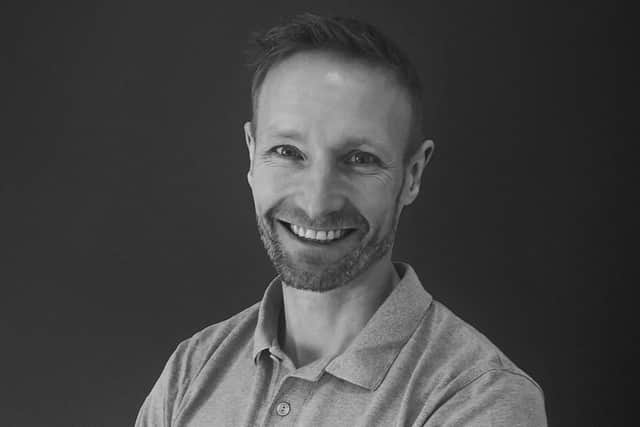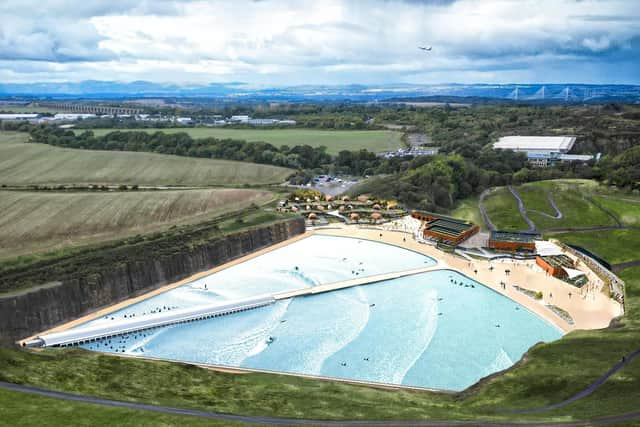'I want to see a Scottish surfer on an Olympic podium' - Scotland's new surf supremo
What a difference a couple of decades can make. In 2004 the Scottish Surfing Federation, the sport’s governing body in Scotland, had been defunct for five years, after running fatally low on members, funds and committed volunteers. The scars of this period can still be seen on the SSF website – on the list of previous winners of the coveted Scottish National Surfing Championships title, dating all the way back to Bill Batten in 1973, there are no names beside the years from 1999-2004, as no contests were run during this time.
In 2005, however, with surfing enjoying a resurgence in popularity, the National Championships were finally held again in Thurso, and the SSF was formally resurrected. Since then, the organisation has gone from strength to strength, reinvigorating the national contest scene, winning recognition for Scotland as an independent surfing nation and subsequently fielding teams at both the World Surfing Games and Eurosurf.
Advertisement
Hide AdAdvertisement
Hide AdNow, with the opening of the £56 million Lost Shore artificial wave pool at Ratho only months away – the biggest sports infrastructure project in Scotland in over a decade – the SSF has appointed its first ever CEO, Paul Stark, partly to make the most of this game-changing opportunity.


Given the timescales involved, you’d expect Stark to act like a man in a hurry, which he does: when we meet for coffee in central Edinburgh he’s abuzz with ideas and enthusiasm. Equally, though, given his background in sustainability (the sports consultancy business he founded looks at both the environmental impact of sporting organisations and their long-term futures) he’s a believer in taking a carefully considered view. The not-inconsiderable task he has set himself, then, could perhaps best be summarised as follows: get things right, but get them right quickly.
“For me,” he says, “the main thing is to have as many conversations as possible. We all want to see a huge amount of progress within a short space of time, and with Lost Shore open I really want to have the organisation in as strong a position as it can be in order to maximise that opportunity. What we really want to make sure of, though, is that we’re bringing people with us, so we want to hear from everybody because we want our aspirations as a governing body to reflect our membership. That’s the most important thing.”
For all that it has achieved in the last two decades, the SSF has always been a volunteer-run organisation. In order for it to continue to flourish, Stark believes, it now needs the same kinds of structures in place as the governing bodies of more mainstream sports.
“The goal here is really to make sure that we’ve got a solid foundation that we can build on,” he says. “As sport professionalises, we will need to make sure we have all those things that we should have as a national governing body in place in terms of governance and policies, the safeguarding of children, etc.”


From 2021-23, Stark worked as head of governance for the UCI Cycling World Championships in Glasgow, so he’s no stranger to sporting small print. He was also head of business operations at Scottish Cycling from 2019-21, so he has an eye on the financial details too, and he sees his new role as being about growing the business side of surfing in Scotland as well as growing it as a sport.
“We have a partnership agreement in place with the Surf Lab at Edinburgh Napier University at the moment, to look at research and development,” he says, “and we’ll be looking to benefit not just the sport through that R&D but also to support Scottish businesses, start-ups and SMEs. So we’re not just looking to grow the sport [in terms of participation], we’re also looking to grow it through the economy, through industry as well. As the first chief exec of the sport I’d really want our impact to be far wider than the sport itself, and to make sure that we’ve got productive partnerships with everyone that wants to work with us.”
Clearly the partnership between the SSF and Lost Shore will be key once the resort opens in September. “I think it’s going to be a step-change,” Stark says. “But it’s an opportunity we’ve got to make sure we maximise. With Lost Shore open, being able to tell people we’ve got waves at a certain size at a certain time is going to provide an opportunity for competitions and attracting people in… people can turn up knowing they’re going to have a certain experience. It will also provide a performance base for Scottish surfing and a place for research and development.
Advertisement
Hide AdAdvertisement
Hide Ad“The Lost Shore resort and the SSF are two completely separate organisations, but we’re both looking to work in partnership for the same outcomes: to have more people involved in the sport of surfing and to have that progression pathway to get them all the way through from whatever club or surf school they attend, in whatever discipline they choose to take part in, to national and international competitions. That’s what we’re looking for – and with surfing’s inclusion in the next three Olympic cycles, I really want to see a Scottish athlete on the podium.”
